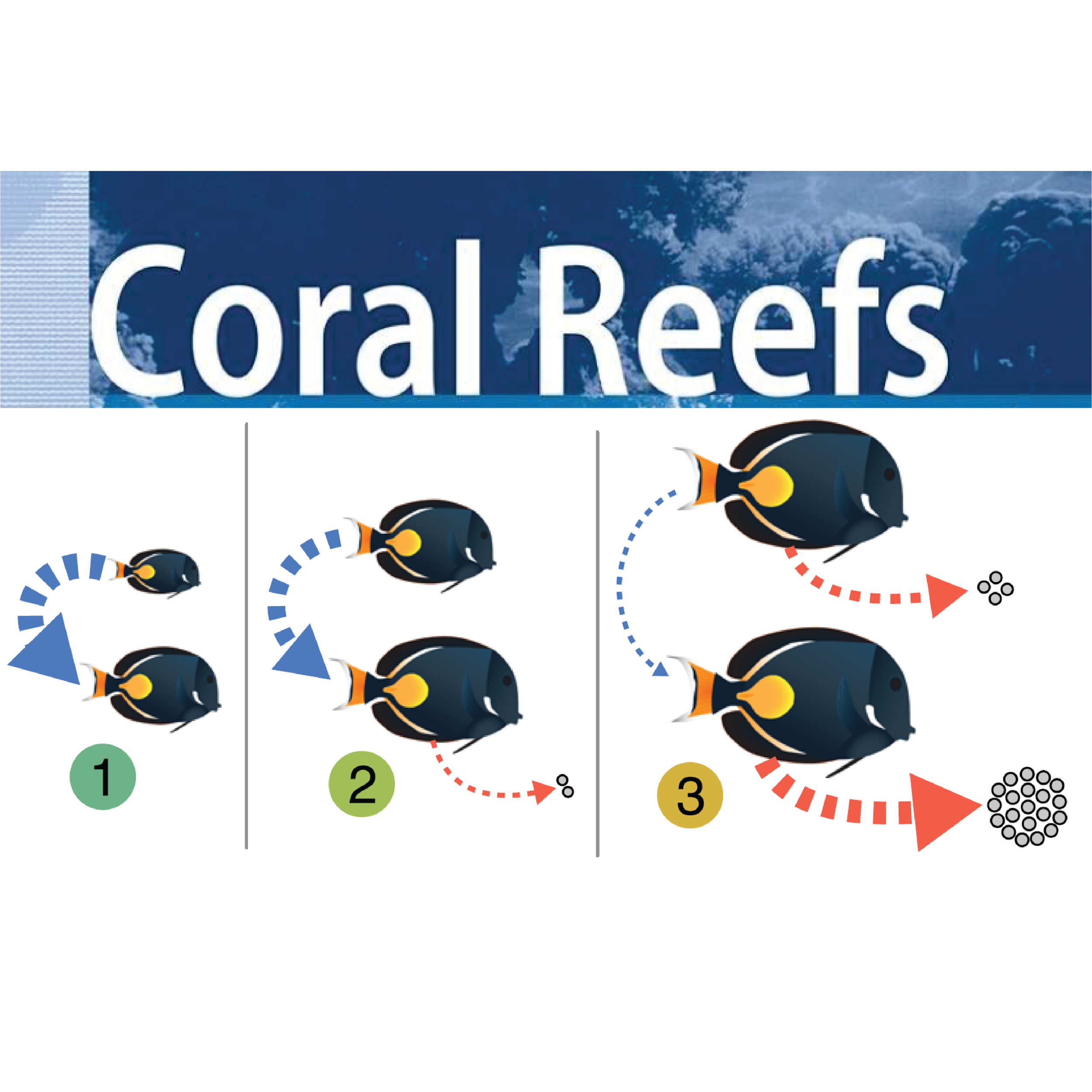Principles for estimating fish productivity on coral reefs
Authors: Renato A. Morais & David R. Bellwood
Abstract:
Coral reefs provide major nutritional inputs to humans through fish production. Yet, our capacity to adequately assess fish productivity in these and other highdiversity aquatic systems is hampered by a lack of computationally accessible methods with realistic data requirements. Standing stock biomass is often assumed to reflect biomass productivity, yet theoretical and empirical evidence question this assumption. These methodological hurdles have stymied progress in managing this critical coral reef function, potentially jeopardising the future of many small-scale tropical fisheries struggling to respond to global changes. Here, we summarise the physiological and ecological processes that lead to the production of fish biomass. We outline principles and present a robust framework for quantifying fish productivity in high-diversity ecosystems that overcomes these shortcomings by integrating readily accessible individual-level data (e.g. from visual counts) with growth trajectories and predicted mortality rates. This framework provides fisheries-independent estimates of multispecies fish productivity without the need to specify often unknown detailed trophic relationships. We delineate five simple steps and provide a critical user-friendly interface (an easy-to-use R package) to make the calculation of fish productivity a readily accessible tool for coral reef scientists and managers.

